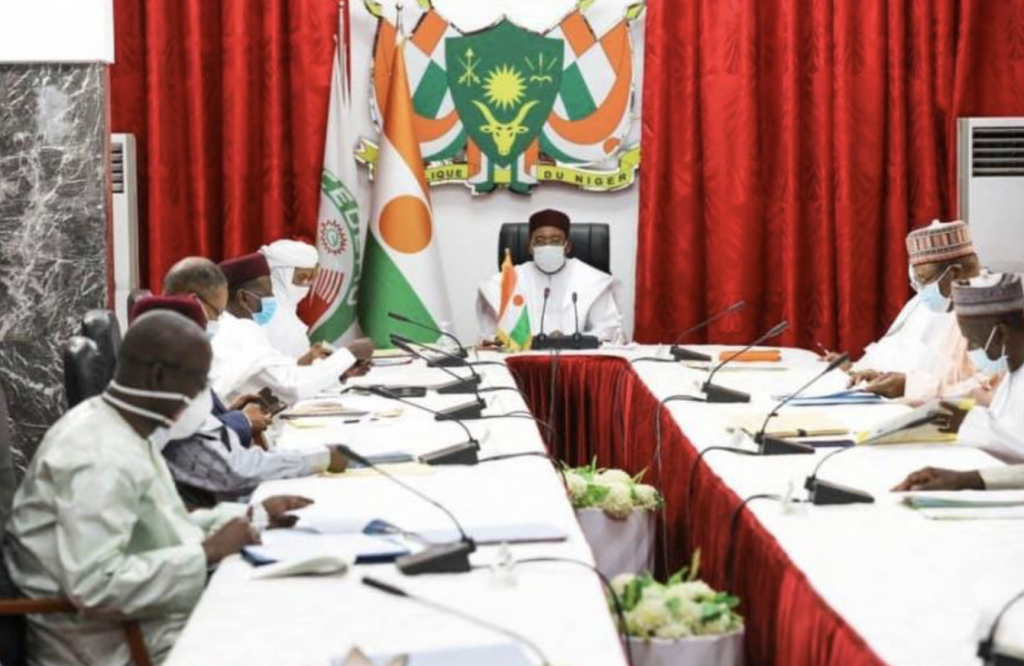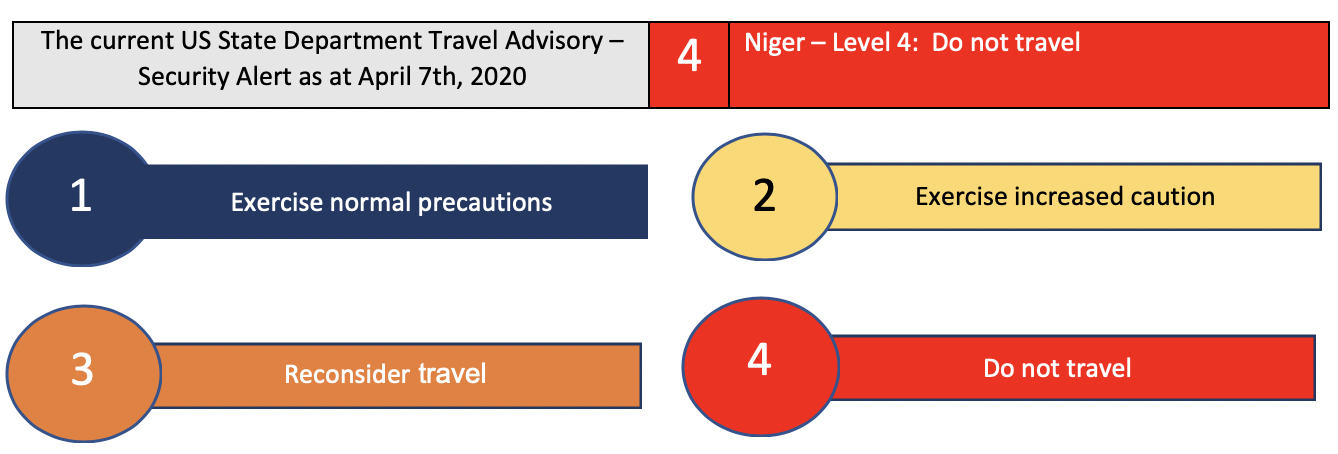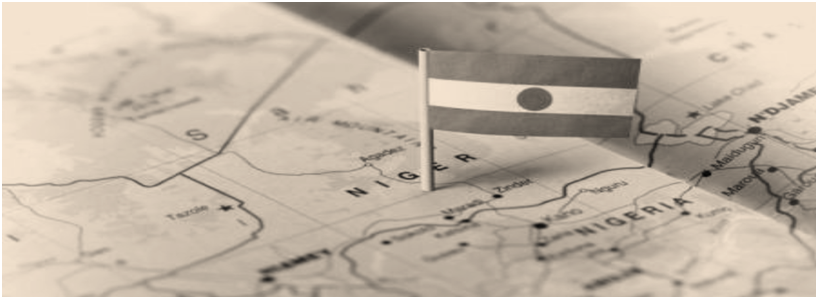
Weekly Highlight
- Italian priest kidnapped in Niger shown in jihadist video: report
- COVID-19: 38 new cases including 3 in Dosso, 448 cases in total including 41 cured
- World Bank invests $140 million to improve education in Niger
- Goudel IV drinking water plant to be operational in July 2020
- Niger exchange rate – Exchange rates West African CFA franc – USD = 598.467 XOF XOF= 0.00167094 USD
EXECUTIVE SUMMARY
Italian priest kidnapped in Niger shown in jihadist video: report
An Italian priest who was kidnapped in Niger in September 2018 has been seen in a jihadist video, according to a newspaper report, in the first proof of life since his abduction. The report in the Air Info newspaper, which did not release the 23-second video, was illustrated by a screenshot showing 59-year-old Catholic priest Pier Luigi Maccalli wearing grey clothes and with a long white beard. Thomas Codjovi, communications officer for the Catholic mission in Niger, said that until now they had no evidence that the priest was still alive.
COVID-19: 38 new cases including 3 in Dosso, 448 cases in total including 41 cured
The assessment of Friday April 10 published by the Ministry of Public Health reports 38 new positive cases out of 98 tested including 13 female cases and 25 male cases. Among these cases, 03 are from the Dosso region and 01 are from Tahoua. No deaths registered today, and of 1692 tested, 448 are positive including 386 in treatment, 41 cured and 11 deaths.
COVID-19: Private Schools, Commercial Institutions to Pay for Fumigation in Niger
Private school proprietors and commercial public institutions are being asked to pay for the fumigation of their premises against coronavirus in Niger state, investigation by local media has revealed. The Investigations showed that while each of the private schools were being levied between N20,000 and N30,000 for the exercise, some private public commercial institutions were asked to cough out between N150,000 and N200,000 for the fumigation of their premises. Separate letters detailing the amount to be paid by those concerned were sent out last week with majority of those concerned vowing never to pay the levy.
World Bank invests $140 million to improve education in Niger
The World Bank approved on April 6 a total of $140 million, $120 million as a grant and $20 million as a loan, to improve the quality of education in Niger. Disbursed through the International Development Association (IDA), this support will help finance the Niger Learning Improvement for Education Outcomes Project (LIRE), which focuses on “fragile” regions and aims to intensify distance education programs in the context of the Covid-19 crisis. LIRE project aims to intensify the use of digital technologies for teacher training and coaching activities in schools, including supervision and monitoring of teaching. It will also contribute to the establishment of a national e-education platform.
Goudel IV drinking water plant to be operational in July 2020
The Goudel IV drinking water plant in Niger is set to be operational in July this year. Niger’s Minister of Hydraulics and Sanitation announced the report and said the project nears completion. The country received US $34m from the government of the Netherlands to finance the project to extend the drinking water network of Niamey. The water extension project includes construction of the new Goudel IV plant, designed to supply the city with water. The Goudel IV water purification plant is currently being built by the Spanish company Denys Sas. Dutch ambassador to Niger Jolke Oppewal estimates that the project to extend the drinking water network of the city of Niamey will benefit 450,000 people in the city of more than 1.5 million inhabitants.
USEFUL INFORMATION
List of holidays in Niger 2020
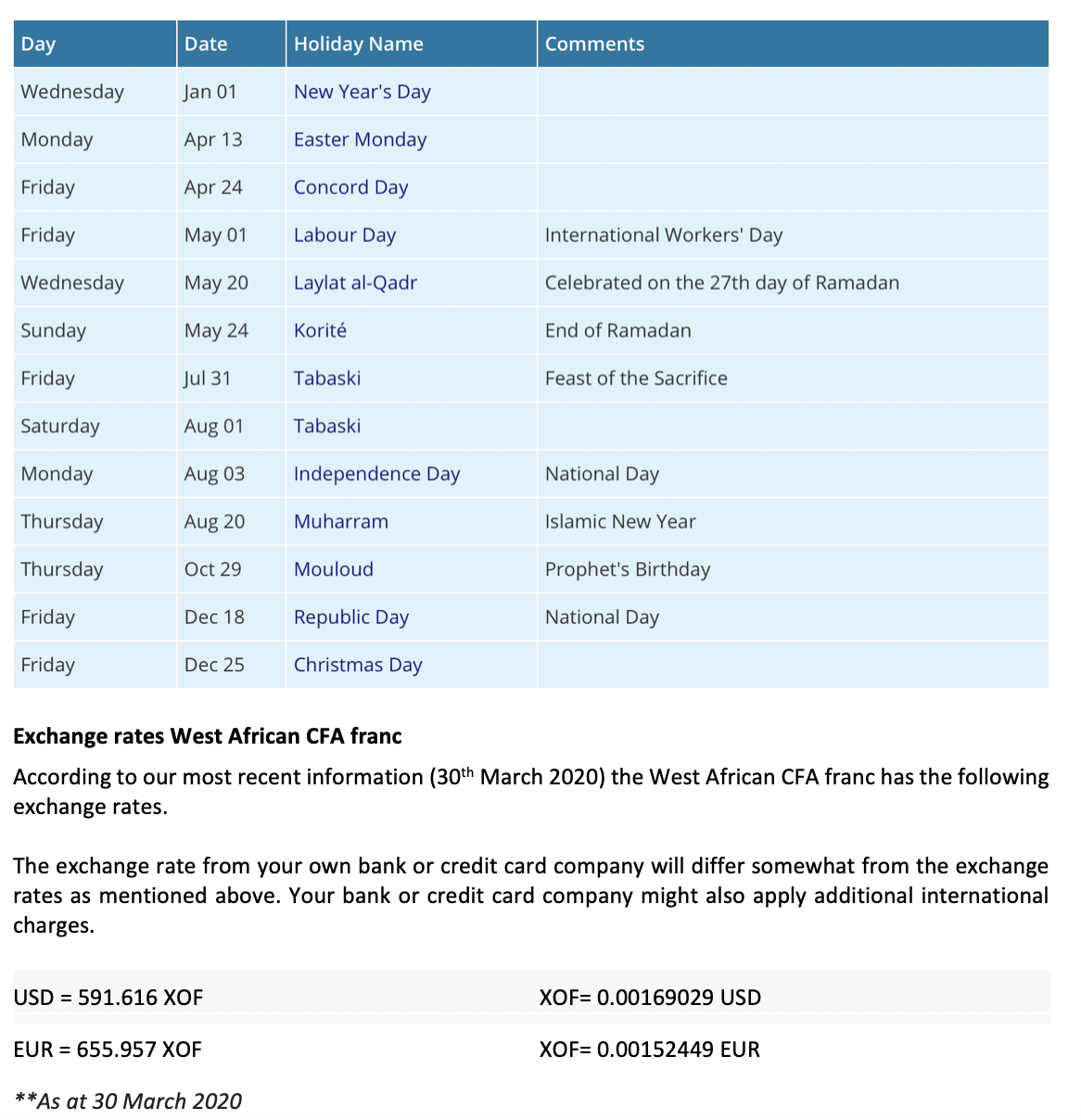
FREQUENTLY ASKED QUESTIONS ABOUT CORONA-VIRUS DISEASE (COVID-19)
COVID-19 Basics
Q: What is COVID-19?
A: COVID-19 is a virus strain, first identified in Wuhan, Hubei Province, China, that has only spread in people since December 2019.
Health experts are closely monitoring the situation because little is known about this new virus and it has the potential to cause severe illness and pneumonia in some people.
Q: How does COVID-19 spread and what are the symptoms?
A: COVID-19 is primarily spread through respiratory droplets. That means to become infected, you generally must be within six feet of someone who is contagious and come into contact with these droplets. It may be possible to get COVID-19 by touching a surface or object that has the virus on it and then touching your mouth, nose, or possibly their eyes, Symptoms of COVID-19 appear within two to 14 days after exposure and include fever, cough, diarrhea and shortness of breath.
Q: How long does it take for symptoms of the COVID-19 to appear?
A: The CDC believes that symptoms of COVID-19 may appear in as few as two days, or as long as 14 days after exposure.
Q: How is COVID-19 treated?
A: There is currently no FDA approved medication for COVID-19. People infected with the virus should receive supportive care such as rest, fluids and fever control, to help relieve symptoms. For severe cases, treatment should include care to support vital organ functions.
Prevention
Q: Is there a vaccine?
A: Currently, there is no vaccine available.
Q: How can I best protect myself?
A: Practice the following:
- Wash your hands with soap and water for at least 15-20 seconds. If soap and water are not available, use a hand sanitizer with at least 60% alcohol.
- Avoid touching your eyes, nose and mouth with unwashed hands.
- Avoid close contact (within 6 feet) with people who are sick.
- Stay home when you are sick.
- Cover your cough or sneeze with a tissue, then throw the tissue in the trash.
- Standard household cleansers and wipes are effective in cleaning and disinfecting frequently touched objects and surfaces.
- It’s currently flu and respiratory disease season and CDC recommends getting vaccinated, taking every preventive actions to stop the spread of germs, and taking flu antivirals if prescribed.
Q: Should I wear a face mask? Will that help protect me?
A: If you are sick: You should wear a facemask when you are around other people (like sharing a room or vehicle) and before you enter a building. If you are not able to wear a facemask (for example, because it causes trouble breathing), then you should do your best to cover your coughs and sneezes, and people who are caring for you should wear a facemask if they enter your room.
If you are not sick: You do not need to wear a facemask unless you are caring for someone who is sick (and they are not able to wear a facemask). Facemasks may be in short supply and they should be saved for caregivers.
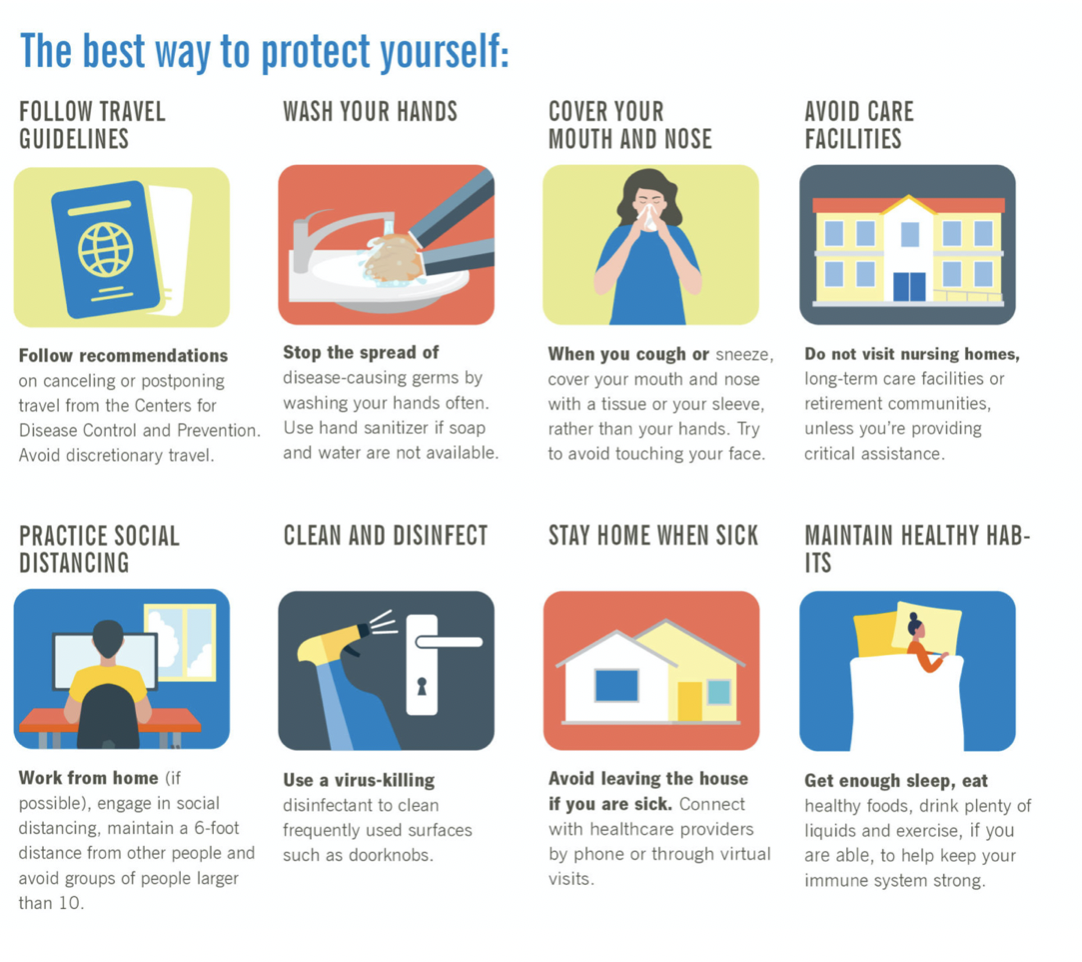
MEDICAL REQUIREMENTS AND INFORMATION
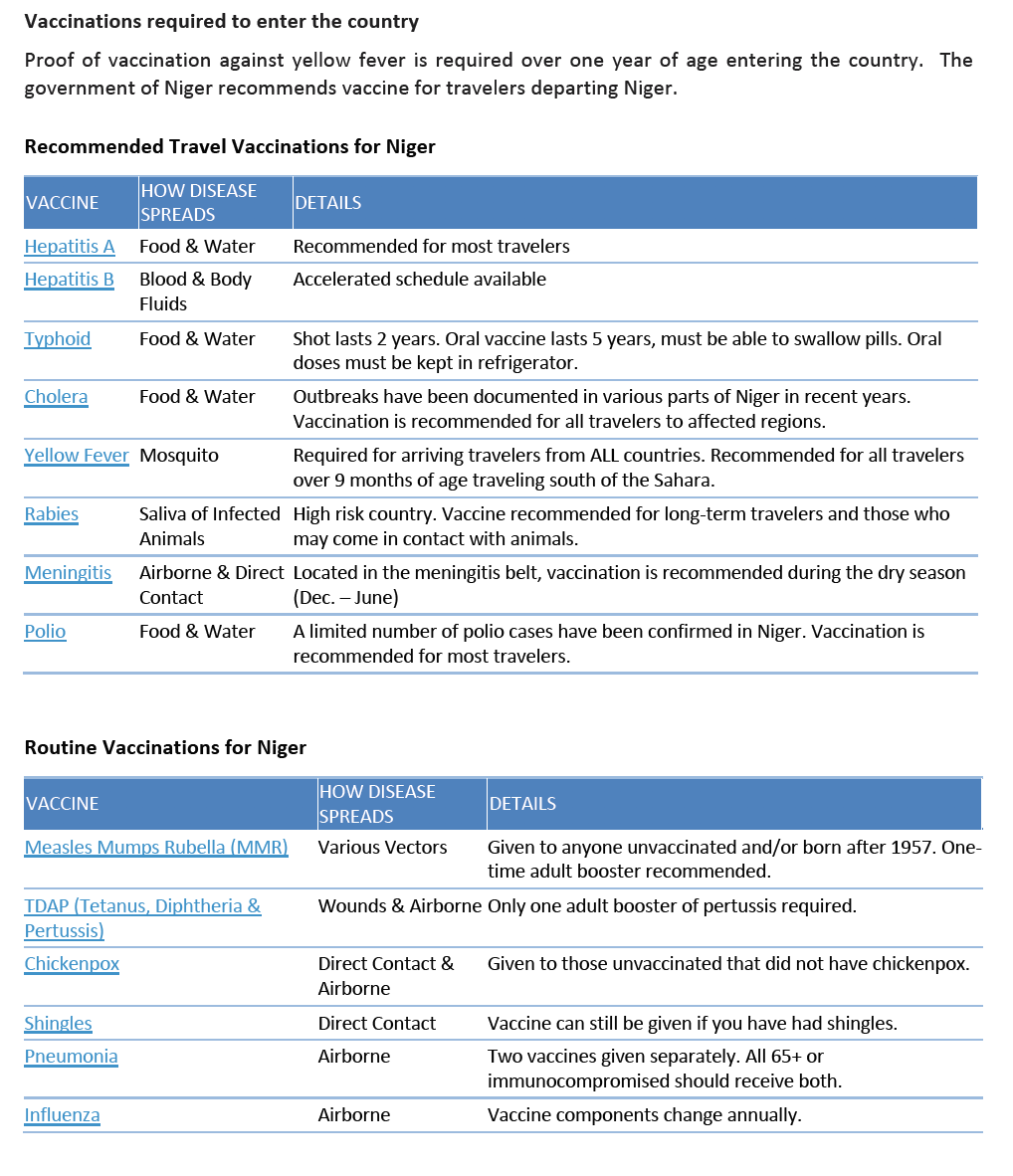
NIGER SECURITY & RISK LEVELS
Global Health Advisory
The Department of State advises U.S. citizens to avoid all international travel due to the global impact of COVID-19. In countries where commercial departure options remain available, U.S. citizens who live in the United States should arrange for immediate return to the United States, unless they are prepared to remain abroad for an indefinite period.
At present the Department of State is making every effort to assist U.S. citizens overseas who wish to return to the United States. As the Covid-19 situation develops, our ability to provide such assistance working with commercial airlines or arranging for evacuation flights may become more limited or even unavailable. In recent weeks, commercial airlines have significantly reduced flight schedules and countries have closed airports and borders with little advance notice. If you wish to return to the United States, you should make arrangements to do so now and contact the nearest U.S. Embassy or Consulate for assistance as needed. There is no guarantee that the Department of State will be able to continue to provide repatriation assistance and transportation options to the United States may be unavailable in the future. If you choose to remain overseas, you should be prepared to remain where you are for the foreseeable future.
U.S. citizens who live abroad should avoid all international travel. Many countries are experiencing COVID-19 outbreaks and implementing travel restrictions and mandatory quarantines, closing borders, and prohibiting non-citizens from entry with little advance notice. Airlines have cancelled many international flights and several cruise operators have suspended operations or cancelled trips. If you choose to travel internationally, your travel plans may be severely disrupted, and you may be forced to remain outside of the United States for an indefinite timeframe.
On March 14, the Department of State authorized the departure of U.S. personnel and family members from any diplomatic or consular post in the world who have determined they are at higher risk of a poor outcome if exposed to COVID-19 or who have requested departure based on a commensurate justification. These departures may limit the ability of U.S. Embassies and consulates to provide services to U.S. citizens.
If you decide to travel abroad or are already outside the United States:
- Consider returning to your country of residence immediately using whatever commercial means are available.
- Have a travel plan that does not rely on the U.S. Government for assistance.
- Review and follow theCDC’s guidelines for the prevention of coronavirus.
- Check with your airline, cruise lines, or travel operators regarding any updated information about your travel plans and/or restrictions.

NIGER INCIDENT MAPPING
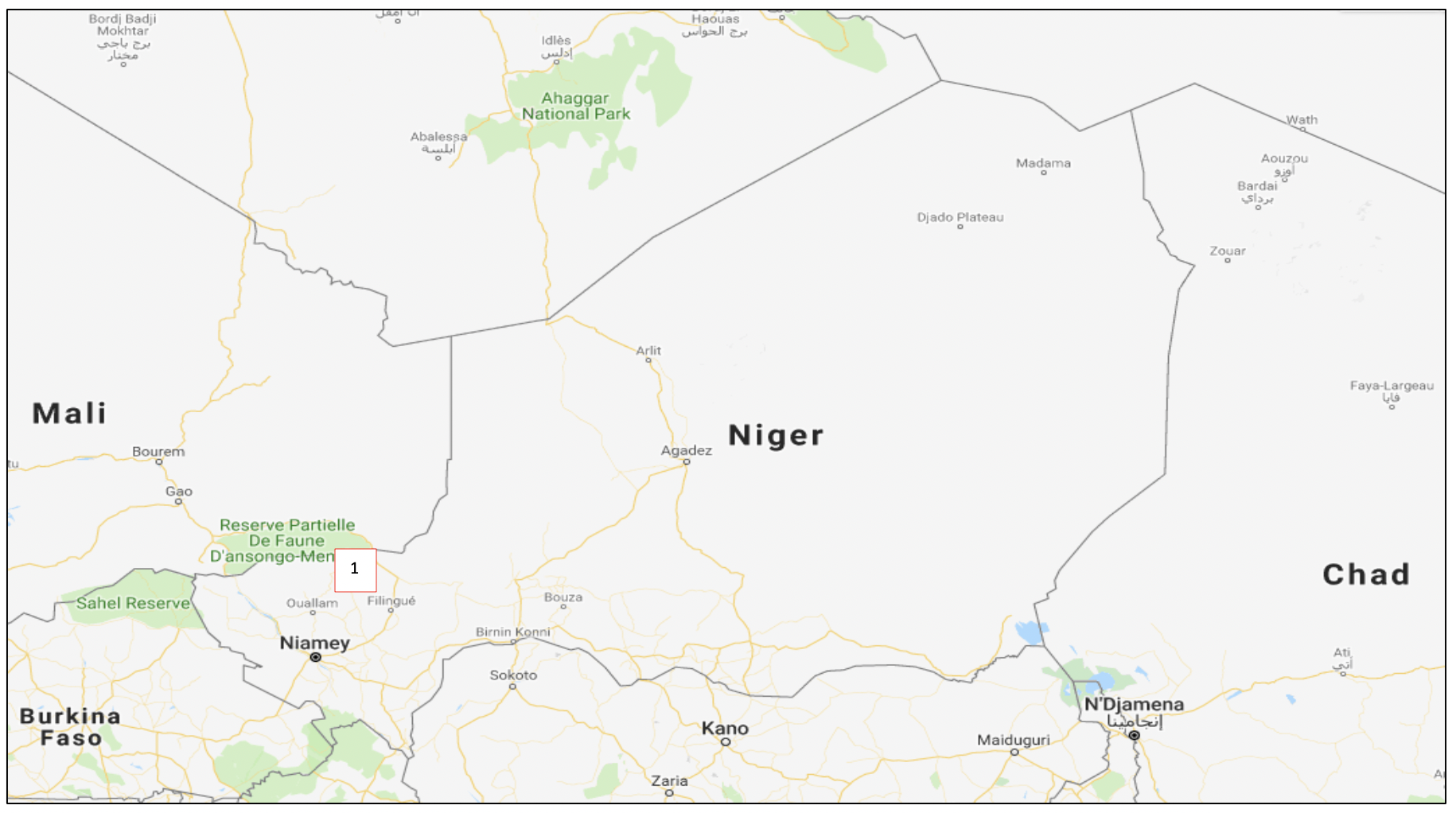
NIGER INCIDENTS IN DETAIL
Insecurity in the Sahel: Change of paradigm and series victories against terrorism
It was 2:30 p.m. on Sunday, April 5, 2020, when heavily armed terrorists targeted the Territorial Gendarmerie Brigade in Banibangou, a locality located 135 km northeast of Oualam, in the Tillabéry Region. They had arrived in numerous vehicles and other two-wheeled vehicles with the firm intention of destroying the camp of the said Brigade, killing the gendarmes occupying it, seizing their equipment and disappearing in the direction, obviously, from the nearby Malian border.
But “the spontaneous response of the elements, in service with the Brigade, forced the terrorists to flee”, underlines a press release from the Ministry of National Defense made public on April 7, 2020. The attack left two people dead on the side of our Defense and Security Forces, two terrorists killed, nine others arrested, two motorcycles and weapons of various calibers recovered from the enemy’s side. “In addition, elements of Operation Almahaou, supported by the aviation of the Barkhane Force, spontaneously engaged in pursuit and combing operations, which enabled the destruction of almost all of the attackers,” added the Minister of National Defense in its press release.
This pursuit and raking operation having led to the destruction of the attackers and their equipment proves, without a doubt, that a synergy of action between our SDS and their allies can be the most effective means to put forward to fight successfully terrorism.
The Minister of National Defense welcomes, moreover, this commitment of the allied forces alongside our SDFs and “on behalf of the President of the Republic, Supreme Chief of the Armies and on behalf of the Government, wishes a speedy recovery to the wounded and addresses his warm congratulations to our brave soldiers, whose bravery and determination made it possible to rout the enemy. ” Just like in Banibangou, this Nigerien locality located in the heart of the “Three Borders Zone”, where our SDS crushed, with the support of our allies, the terrorists who attacked them on April 5, 2020, the same strategy operational force pooling prevailed to wipe out elements of the jihadist sect Boko Haram in the islands of Lake Chad in the extreme south-east of our country. Indeed, according to a second press release from the Ministry of National Defense, “in the context of the fight against terrorism, the Minister of National Defense met in Diffa on March 24, 2020 with his counterpart from Chad to decide to a bilateral operation. This operation, launched on Sunday March 29, 2020, is currently continuing in the Lake Chad region against the terrorist group Boko Haram”.
POLITICAL OVERVIEW
The situation of Nigeriens stranded outside as a result of the Covid 19 pandemic is deteriorating. They live in several countries in deleterious and critical conditions. We must fear the worst if nothing is done to repatriate them in the coming days. They will be homeless for lack of money and threatened with eviction in hotels that have started to threaten them. In a press release in the form of a heart cry on the Niger Express site received a copy a few moments ago, the Nigeriens stranded in Morocco call on the President of the Republic to take due care so that they can return to the fold. “Mr. President of the Republic of Niger Issoufou Mahamadou, father of all Nigerians, we are Nigerians stranded in Morocco since the border was closed from March 12, 2020 due to the Covid pandemic” they indicate.
The Council of Ministers on Friday April 3 decided to create a Solidarity Fund as part of the fight against the Covid-19. According to the government press release issued after the Council, which took place under Issoufou Mahamadou’s presidency, this fund is intended to cover all expenses related to the fight against the coronavirus pandemic. These include, in particular, the costs of upgrading the health system, support for households and the economy, the functioning of the institutional system for managing the crisis linked to Covid-19 as well as all the operations involved in as part of the Covid-19 response plan.
90 votes in favor, zero against and zero abstentions, this is the result of the vote on the bill extending the state of emergency submitted to parliament by Prime Minister Brigi Rafini. It was therefore unanimous that the deputies gave their discharge to the government to better manage the coronavirus pandemic which is raging in our country. Recall that the rapid evolution of the pandemic, between the appearance of the first case and April 9, 2020, makes Niger the fourth (4th) country most affected by COVID-19 in sub-Saharan Africa, after Africa from the South, Cameroon and Burkina Faso, according to statistical data from the INS (National Institute of Statistics).
The Ministers of Foreign Affairs of the member countries of the G5 Sahel (Niger, Chad, Mali, Mauritania and Burkina Faso) held a meeting (in video conference) on Thursday April 9, 2020. The purpose of this (virtual) meeting was to compare experiences on the fight against Coronavirus in the five (5) countries but also to take stock of the fight against terrorism in their area. They also exchanged to agree on a timetable for discussions with the French and European parties with a view to operationalizing the coalition launched on March 27. Progress has been made in aligning the positions of the G5 Sahel countries on the above issues. Discussions will continue between Minister Kalla Ankourao and his counterparts on Tuesday, April 14, 2020 to reach a consensus and allow the G5 Sahel countries to speak with one voice vis-à-vis their partners.
